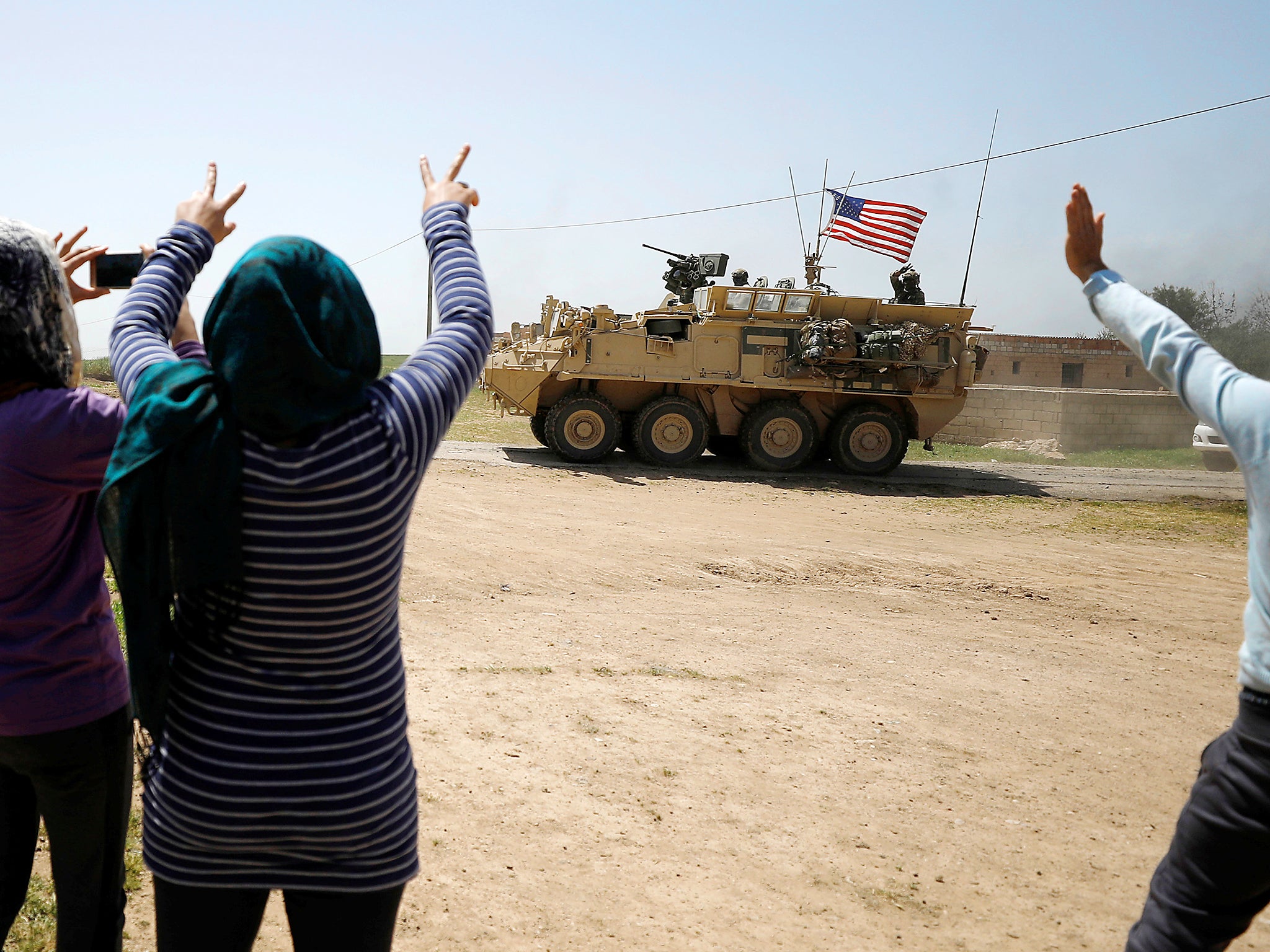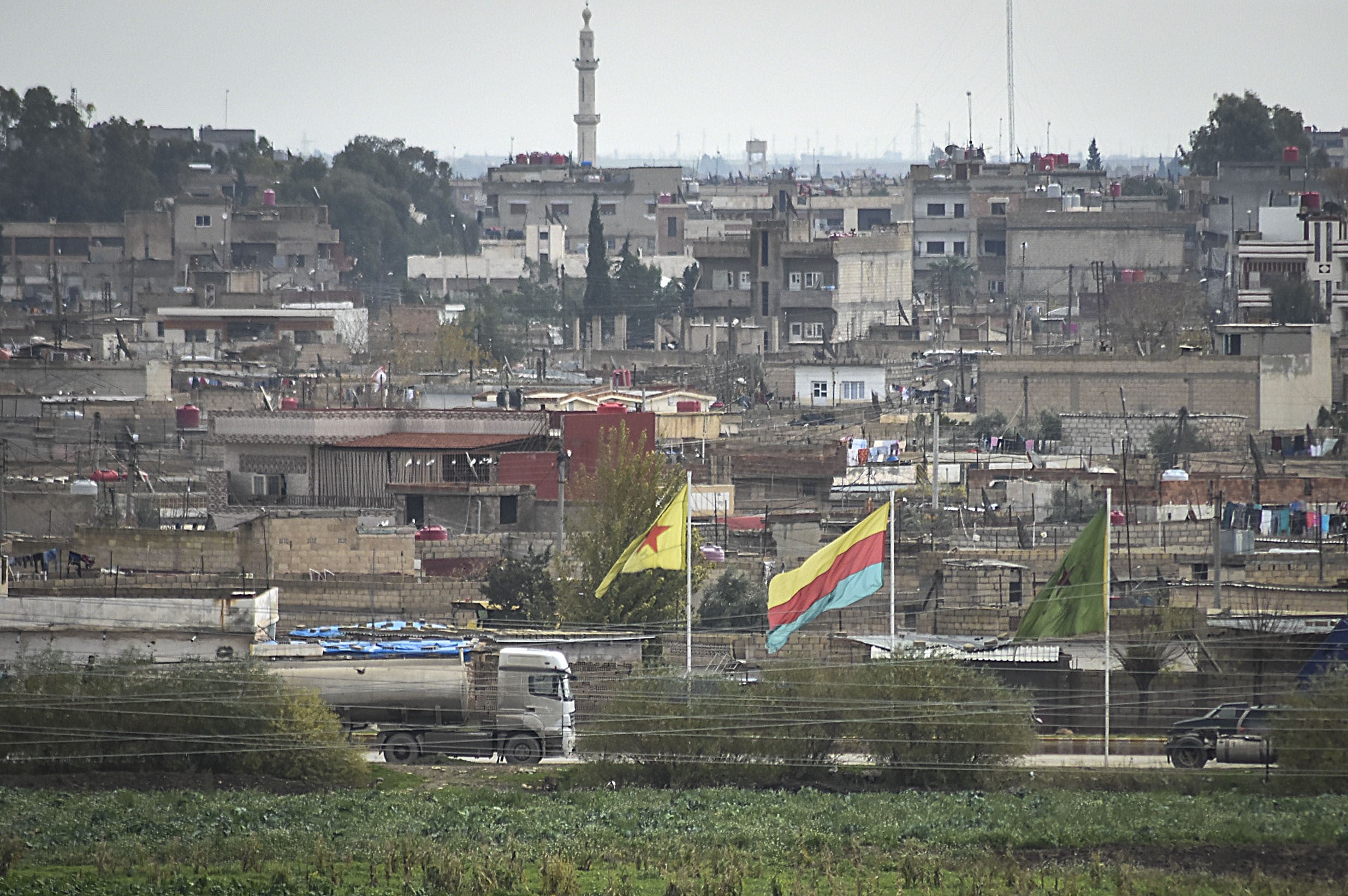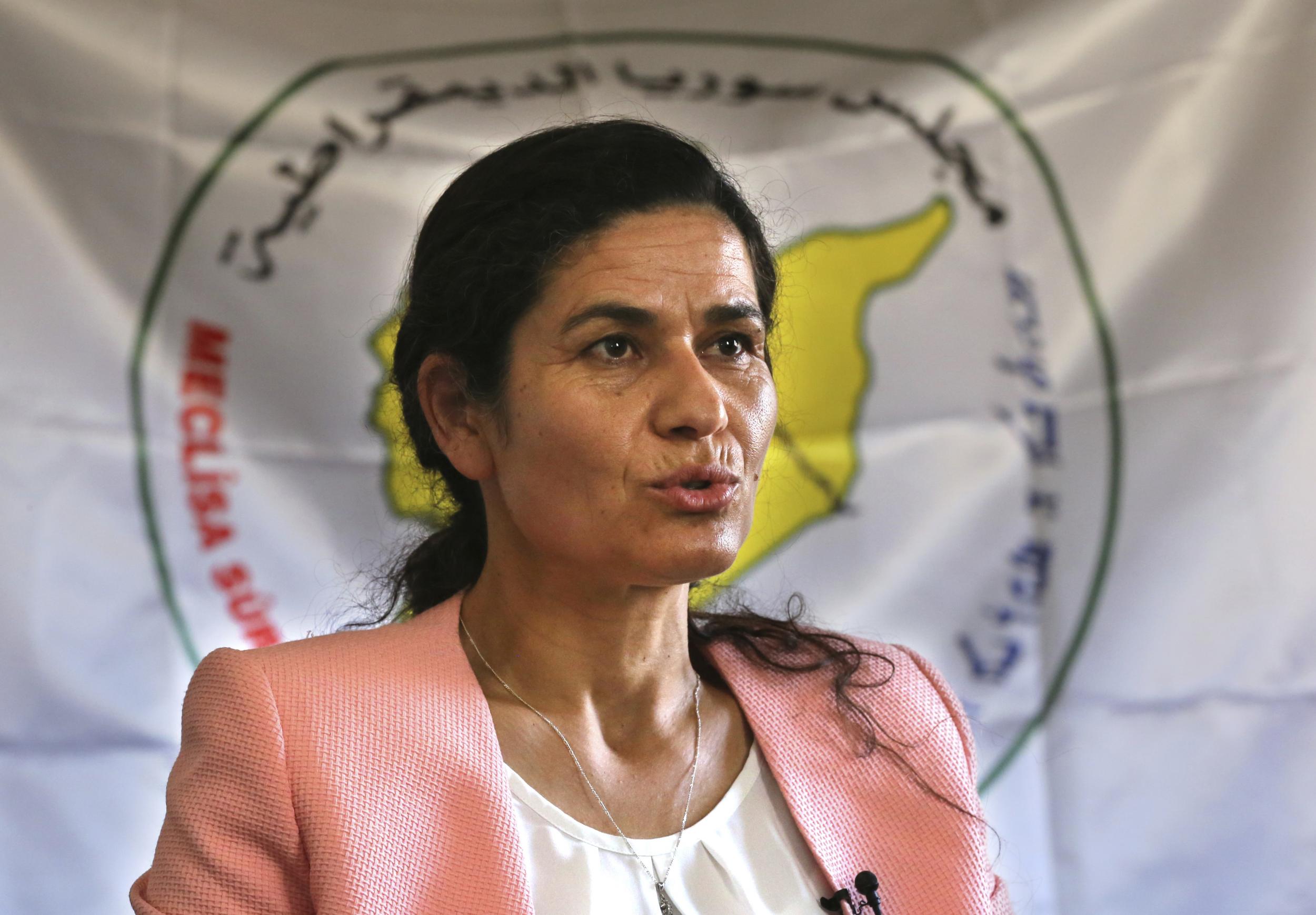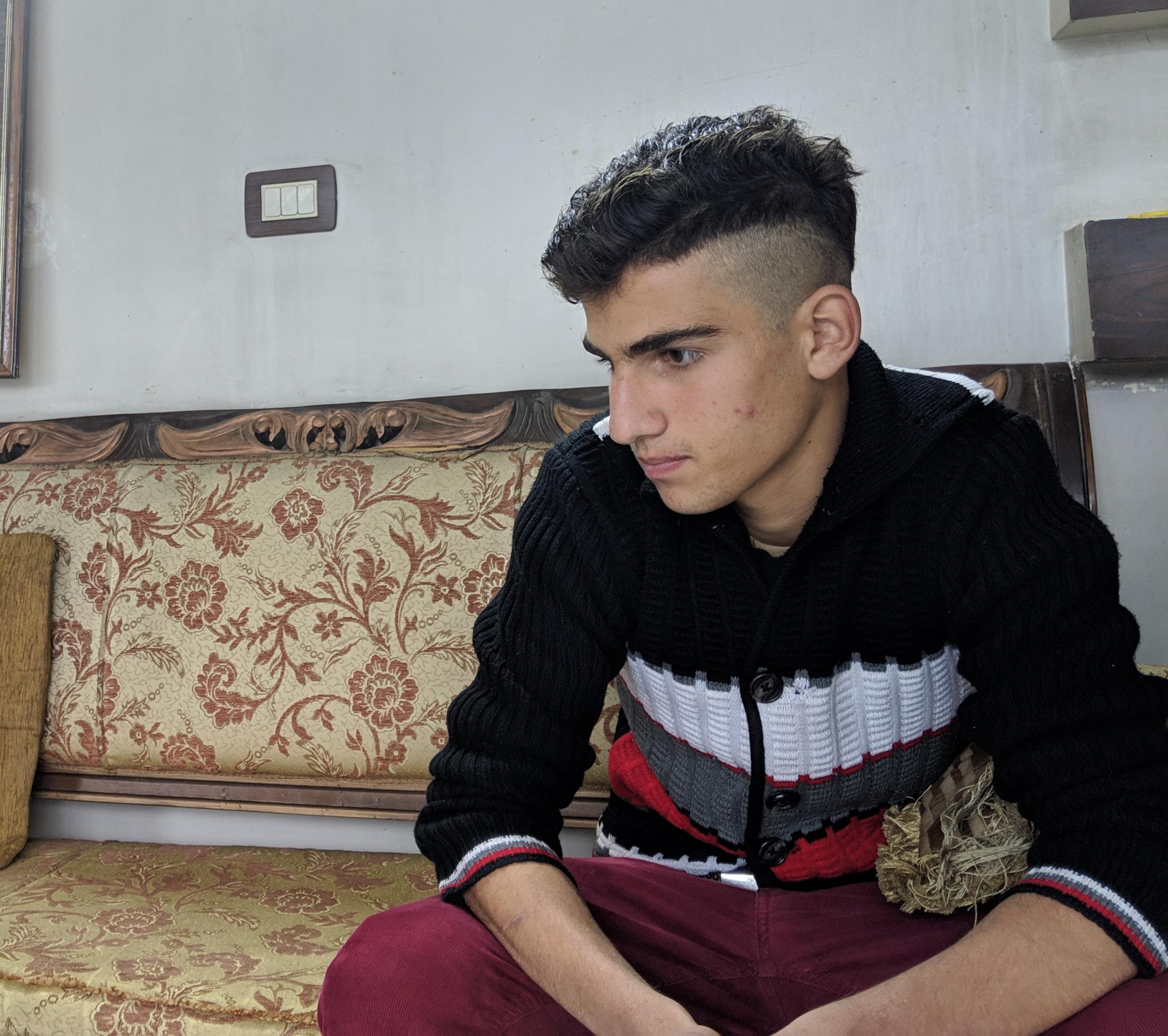‘You took us to the middle of the road and left us there’: Syrian Kurds fear more upheaval as US troops plan withdrawal
Turkey’s plans for safe zone in northern Syria worries country’s Kurdish community, writes

Your support helps us to tell the story
From reproductive rights to climate change to Big Tech, The Independent is on the ground when the story is developing. Whether it's investigating the financials of Elon Musk's pro-Trump PAC or producing our latest documentary, 'The A Word', which shines a light on the American women fighting for reproductive rights, we know how important it is to parse out the facts from the messaging.
At such a critical moment in US history, we need reporters on the ground. Your donation allows us to keep sending journalists to speak to both sides of the story.
The Independent is trusted by Americans across the entire political spectrum. And unlike many other quality news outlets, we choose not to lock Americans out of our reporting and analysis with paywalls. We believe quality journalism should be available to everyone, paid for by those who can afford it.
Your support makes all the difference.When Abu Amar heard the news that the US would be pulling its troops from Syria, an old love song drifted into his head.
“It goes: ‘You took me to the middle of the road and you left me there,’” says the Kurdish 50-year-old used car salesman*. “That is what the Americans are doing to us.”
The actual line in the song is slightly different, but the meaning is the same.
Over the last few years, Syria’s minority Kurdish population has faced down the threat of Isis, gone on to win new freedoms and built an autonomous administration that it hopes will outlast the country’s civil war.
They have done so in large part due to the protection afforded to it by the US military, which allied itself with the Kurdish-led Syrian Democratic Forces (SDF) and sent 2,000 US troops to Syria to help bring an end to the Isis caliphate.
But with the caliphate on the verge of defeat, those American soldiers are on the way out. Their withdrawal, abruptly announced by Donald Trump in December, has raised the prospect of further instability for Syrian Kurds.
“All through history we have made alliances with big powers, but when they leave we are always left in trouble,” says Abu Amar.

A look at the map is enough to see why he is concerned. To the west, an emboldened Syrian government is eager to reassert its authority over Kurdish areas after years of absence. To the south, Isis sleeper cells are emerging from the ashes of the defeated caliphate. But the biggest threat lies to the north, where Turkey is threatening to cross the border and crush the Kurdish militia that holds power here.
Turkey’s president Recep Tayyip Erdogan has threatened for months to create a “safe zone” inside Syria and remove the SDF from the border. The plan calls for a zone that stretches 20 miles deep into the country. Such a plan would swallow up major Kurdish towns and cities, including Qamishli, where Abu Amar lives.
“Right now we are trying to save our money in case of an invasion,” he says. “If the Turks come here, it will be like when Isis controlled these areas. I will leave everything behind and go.”
Like many in the Kurdish areas of Syria, Abu Amar views Turkey with deep suspicion. Due in large part to a decades-long policies of discrimination towards its own 15 million-strong Kurdish population, Turkey is viewed as something of an enemy by many Syrian Kurds.
For the past 40 years, Turkey has fought a homegrown insurgency led by the Kurdistan Workers’ Party (PKK), a militant group founded to fight for autonomy for Kurdish people in Turkey, but which now claims to fight for greater rights. The PKK is listed as a terror organisation by the European Union, the US and Turkey.
But while the US distinguishes between the two, Ankara says the Kurdish fighters of the SDF are directly connected to the PKK, and so views its growing power as an existential threat.
The US now finds itself in the centre of these two bitter enemies. The SDF has been a key ally of Washington in the fight against Isis, but the US recognises Turkey as a vital Nato partner.
Since the withdrawal was announced, US diplomats have scrambled to prevent an outbreak of fighting that would allow Isis space to regroup. The plans for a safe zone are currently “stuck in limbo”, according to Nicholas Heras, an analyst at the Centre for a New American Security.
“The Americans to their credit are trying very hard to find a deal that satisfies Turkey’s concerns, but also preserves the SDF as the primary vehicle through which to counter the reemergence of Isis,” he tells The Independent.
The Americans to their credit are trying very hard to find a deal that satisfies Turkey’s concerns, but also preserves the SDF as the primary vehicle through which to counter the reemergence of Isis
“But the US team cannot get guarantees from Turkey that would prevent Turkish activities to dismantle the SDF.”
Here in Qamishli, there is a sense of foreboding over the plans. One reference comes up repeatedly in conversations: Afrin. The predominantly Kurdish region to the west of the Euphrates river, known for its vast olive groves, was held by the SDF until Turkey captured it early last year.
Since then, Amnesty International has accused Syrian rebel groups who now control the area, under Turkey’s command, of carrying out forced disappearances, confiscation of property and torture.
“In Afrin, the people suffered massacres. That’s what will happen here,” says Sardar Khalil, a 60-year-old technician. “Right now there is peace for us. But in Afrin no one is allowed to move.”
The SDF, aware that it would not stand much of a chance against Turkey’s modern army, has been looking for a compromise. It has recently suggested that an international force under the United Nations implements a safe zone, instead of Turkey.
Ilham Ahmed, the co-chair of the Syrian Democratic Council – the political arm of the SDF, is concluding a whistle-stop tour of western capitals this week to drum up support for the idea.
“Any attempt by the Turkish state to establish a safe zone in the north of Syria will be an occupation, and no matter that the Turkish state wants to convince others that it will be a force for calm in the region, this is not what will happen,” she said during a visit to London this week, according to The Guardian.

Turkey’s defence minister Hulusi Akar has rejected the idea outright, however.
“The safe zone isn’t for Turkey alone, but also for the safe return of Syrian refugees who have had to leave their homes back to their country,” he said on Friday, according to the Anadolu news agency. “Only Turkey should be present in the safe zone.”
Even if a deal is reached on the safe zone, the SDF faces another powerful foe in the form of the Syrian government, and its ally Russia. Damascus has made it clear that it intends to reassert its control over the entirety of the country, meaning the autonomous self-administration built by the SDF over the past few years is at risk.
The return of government control here would mean a return to a time when Kurds were treated as second-class citizens, according to Abu Amjad, another salesman also in Qamishli.
If you wanted to be employed, they wouldn’t let Kurds have jobs. If you wanted to buy properties you couldn’t register in your name
“You had to do everything through the Ba’ath regime,” says the 54-year-old. “If you wanted to be employed, they wouldn’t let Kurds have jobs. If you wanted to buy properties you couldn’t register in your name. Then you had the security services harassing people all the time.”
Perhaps the biggest impact of the self-administration will be on the younger generation of Kurds, who are growing up with rights their parents did not have, like being taught in their own language at school for the first time.
Rahman Izzedine Bozou, a 17-year-old high school student, says he wasn’t even allowed to speak Kurdish in the hallways before.
“It happened two or three times. I was speaking Kurdish and the teacher hit me with a stick,” he says. “We studied for seven or eight years in Arabic, so it was difficult to make the change. But it’s nice to study in your mother tongue.”

A return of government control could also mean punishment for tens of thousands of Kurds who have avoided conscription in the Syrian army. Many now essentially live as fugitives, unable to travel outside of Kurdish areas of control, for fear of arrest.
Without the protection of the US, Abu Amar fears the worst.
“If the Turks come here, the whole Kurdish community will be destroyed,” he says. “And if the regime come they will take thousands of young people for conscription.”
This is what he means by “the middle of the road”.
*Some names in this article have been changed to protect the identities of interviewees who fear they may face arrest in government-controlled areas
Join our commenting forum
Join thought-provoking conversations, follow other Independent readers and see their replies
Comments